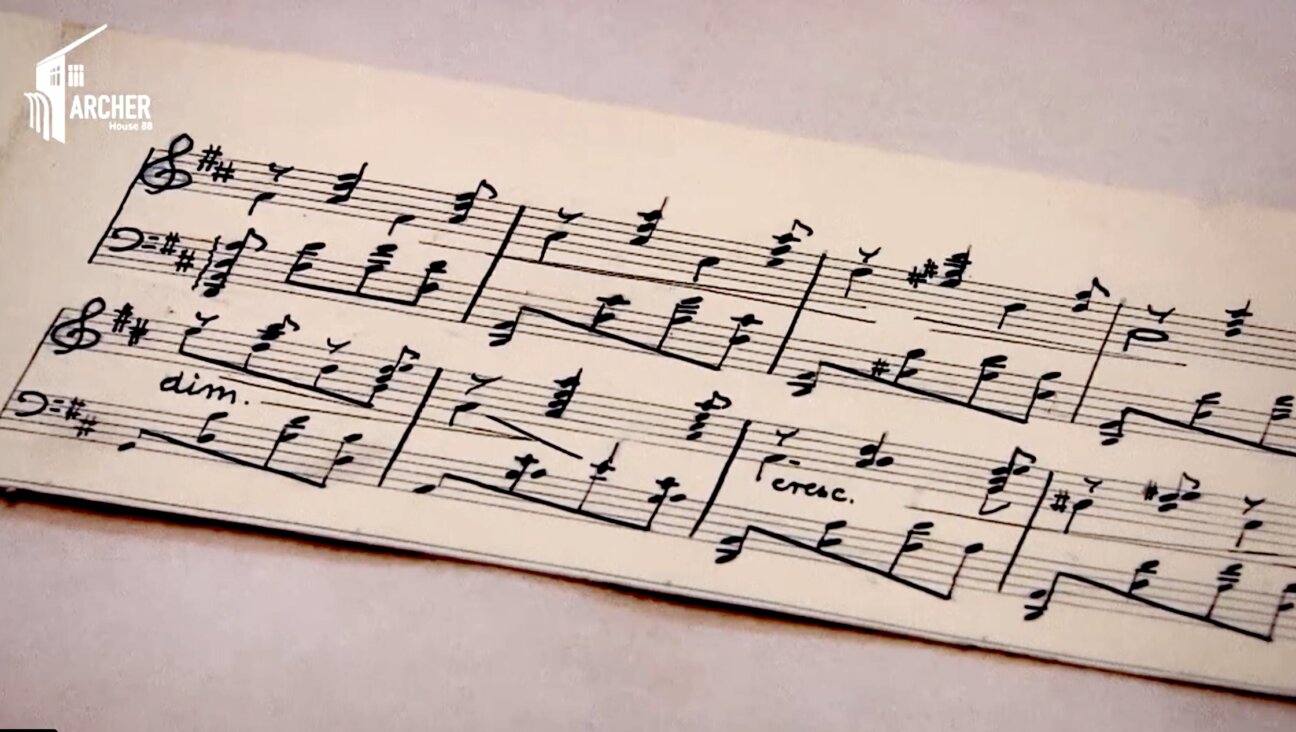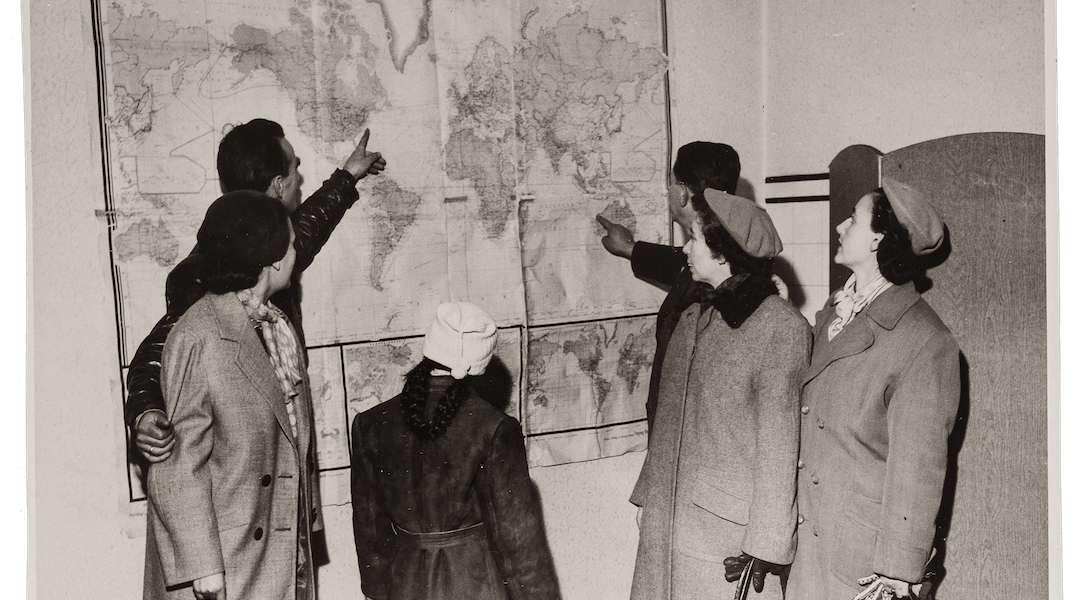Why Anguish Over AIPAC’s Invitation to Donald Trump Is Misplaced

Image by Getty Images
If there were any doubts about the propriety of the invitation extended to Donald Trump to address the annual Washington policy conference of the American Israel Public Affairs Committee, the results of the March 15 presidential primaries should have laid those doubts to rest.
The core mission of the powerhouse pro-Israel lobby is to ensure good relations between the American and Israeli governments. Those relations begin at the top, with the White House and its occupant. And the voting on Super Tuesday greatly increased the odds that Trump will be one of the two candidates contending to win the presidency next fall, like it or not. Now is the time for the lobby to start, well, lobbying.
It’s a safe bet that most readers won’t like it. Twitter and the blogosphere are filled with condemnations of the AIPAC invitation. Some come from critics who say the lobby — or Israel — has shown its true colors. Others come from anguished citizens who believe AIPAC has implicated the Jewish community and Israel in Trump’s bigotry. Rob Eshman, editor in chief of the Jewish Journal of Los Angeles, that the lobby made a “core moral mistake” by inviting the billionaire candidate, thereby lending its “imprimatur” to his bigotry and offending key constituencies whose support we need, particularly Muslims and Latinos.
Eshman wrote that while AIPAC can’t “necessarily” retract, it could salvage the situation by condemning the candidate’s “incendiary statements” about various groups, denouncing his “clear incitement to physical violence” and making clear that “those who foment hate and violence have no place in American politics, or on an AIPAC dais.” Making clear, that is, that Trump shouldn’t be appearing on the dais on which he’s been invited to appear.
The anguish is understandable, but the hard truth is that it’s misplaced. If AIPAC were a different Jewish organization — say, a federation of congregations, an institution of religious education, or a league for combating bigotry or promoting intergroup relations — then the thought of honoring Trump by offering him a platform should indeed appall us. Trump’s message, his behavior and the very fact of his candidacy fly in the face of Jewish values as the vast majority of us understand them.
To expect that of AIPAC, though, is to mistake the purpose of the lobby — and, in a way, to misunderstand the nature of Jewish organizational activity. Though it’s not always apparent from their public statements, the main Jewish organizations constitute a rough sort of governing structure in which each component has a job to do. Many are tasked with examining, teaching or advancing the values of our heritage, as variously interpreted. Others act on them by caring for the poor or sick. AIPAC’s job is to ensure that America stands with Israel. It’s pretty good at it.
Some fret that it protects Israel from paying a price for its mistakes and thus perpetuates those mistakes. But the alternative — leaving Israel defenseless in the face of very real threats — is far worse. And given its mission, it’s important that the lobby keep itself on decent terms with whatever powers govern in Washington. Who holds those powers is an important question, never more so than this year, but it’s not a question AIPAC exists to answer.
The choice America faces this year is indeed critical. Trump’s policy statements and campaign promises, such as they are — the maligning and stigmatizing of Mexicans and undocumented immigrants, the vows to reintroduce torture and to bar all Muslims from entering the United States — fly in the face of all that America stands for, all that makes us a beacon of hope around the world.
No less important, the prospect that a person capable of such talk might be elected president makes our allies wonder about the sanity of the American electorate. It threatens our relations with our closest neighbors. It offends and alienates the Muslim world, one-quarter of the world’s population. Judging by the signals coming from European and other capitals, it appears the very fact that he is headed for nomination by one of our two major parties is, in subtle ways, already weakening the fabric of our national security.
But the policy promises aren’t the most alarming aspect of his candidacy. Too little attention is paid to the rest of his speeches and what they show about the man. That’s what should scare us most. The main content of his speeches routinely consists of endless catalogs of public figures he likes and others whom he dislikes. This nearly always comes down to naming those who’ve said nice things about him and those who’ve spoken negatively about him. Or, in Trump-speak, people who’ve been “amazing” toward him and those who’ve said “disgusting things” about him. Shockingly absent is praise or condemnation based on principles like justice, integrity or generosity.
Absent, in fact, is any hint of principles guiding his quest for power. Taken as a whole, his public appearances are a deeply troubling display of raw insecurity and need, mixed with boasts about the resources he’s acquired and threats to use them against those who offend him. Beneath the bully, he’s a damaged, insecure, narcissistic child-man who yearns for approval and rages when he doesn’t receive it. Now he wants to have his finger on the nuclear button. And America just might give it to him.
Americans of every stripe should be doing everything they can to prevent that. Jewish Americans in particular should throw themselves into the fight with all they’ve got, because of their values and because of their interests.
Just what role Jewish organizations should play is a lot more complicated. The laws governing not-for-profit organizations bar them from endorsing or opposing candidates for public office. In a strange sort of catch-22, this means that not-for-profits devoted to protecting democracy or to fighting bigotry are barred from directly confronting the worst sort of threat, that of a bigot or demagogue seeking the levers of power. And this particular candidate would remember who broke the rules to oppose him.
The threat of a Trump presidency must mobilize each of us to do what we can. But, as with every other threatening storm, here too we must remember to keep our tools intact to cope with the worst if and when it comes. For AIPAC, that means keeping the lines open.
Contact J.J. Goldberg at [email protected] or follow him on Twitter @JJ_Goldberg
















